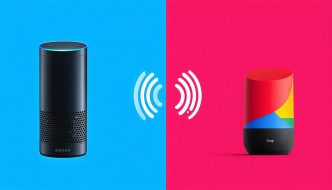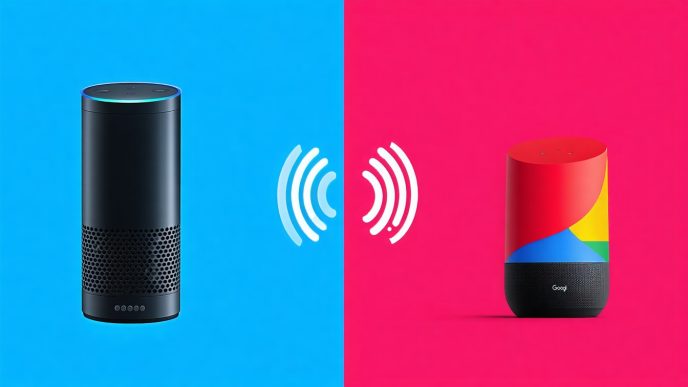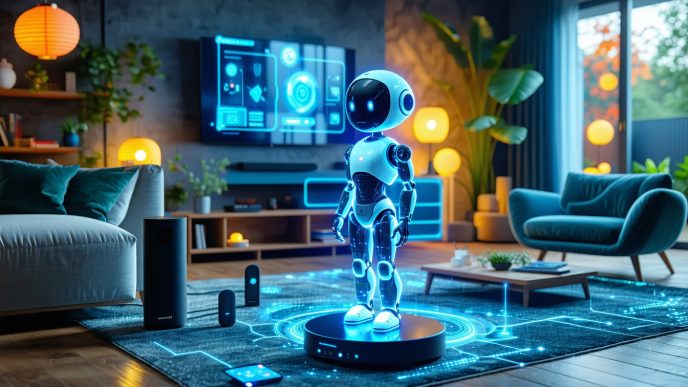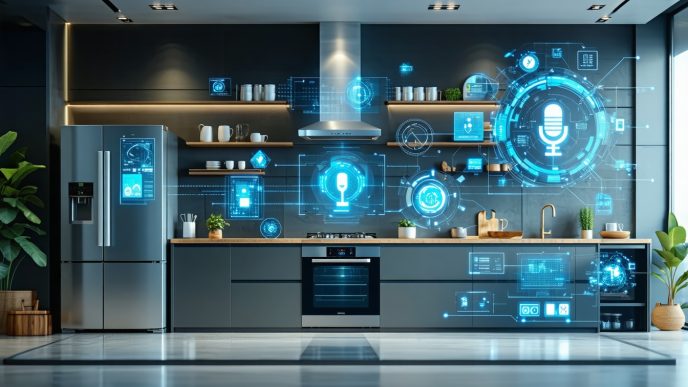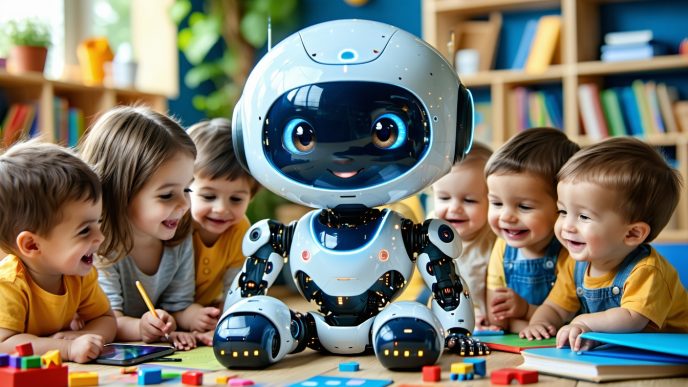The Role of AI Assistants in Senior Care
Importance of Independent Living for Seniors
Independent living is vital for seniors as it fosters a sense of autonomy and self-worth. Many elderly individuals wish to maintain control over their daily lives, allowing them to make personal choices and maintain dignity. Independent living can lead to various benefits, including improved mental health, reduced feelings of isolation, and increased physical activity. AI assistants can play a crucial role in facilitating this independence by providing support and resources tailored to senior needs.
Potential Benefits of AI Assistants for Elderly Support
AI assistants can offer numerous advantages for elderly support, enhancing the quality of life for seniors. Below are some key benefits:
| Benefit | Description |
|---|---|
| Task Reminders | AI assistants can help seniors remember important tasks, such as medication schedules or appointments. This can be crucial for maintaining health and well-being. |
| Safety Alerts | AI assistants can monitor for emergencies and send alerts or make calls to caregivers in case of falls or unusual behaviors. This system can provide peace of mind for both seniors and their families. |
| Health Monitoring | With integrated health monitoring features, AI assistants can track wellness indicators and remind seniors to stay active or alert them of any concerning changes. |
| Communication | AI assistants can facilitate communication with family and friends, reducing feelings of loneliness and promoting social interaction. |
| Home Automation | By integrating with smart home devices, AI assistants can help manage lighting, temperature, and security, creating a comfortable environment tailored to individual preferences. |
Seniors utilizing AI assistants can experience a greater sense of control over their living arrangements, empowering them to live more independently. Features like those found in the capabilities of AI assistants are vital for providing the necessary support. To explore further on practical applications, refer to our section on AI assistant use cases.
Understanding Voice Controlled Assistants
Voice controlled assistants are an integral part of modern technology, providing numerous benefits across various applications. These AI-driven interfaces aim to simplify daily tasks, enhance connectivity, and promote independent living, especially for the elderly.
How Voice Controlled Assistants Work
Voice controlled assistants operate through a combination of natural language processing (NLP), artificial intelligence (AI), and machine learning algorithms. A user speaks a command or question, which the assistant recognizes and processes. The assistant then retrieves relevant information or executes the requested action.
The typical process can be summarized as follows:
- User Input: A person speaks a command into the microphone of the device.
- Voice Recognition: The assistant uses voice recognition technology to decipher the spoken words.
- Processing the Command: AI algorithms analyze the command and determine the appropriate response or action.
- Executing Action: The assistant performs the requested task or provides the information necessary.
A relevant feature of these assistants is their ability to learn from user interactions, becoming more accurate and efficient over time.
Features and Functions of AI Assistants
AI assistants come equipped with a variety of features, designed to enhance user experience and offer practical support for daily living. Below is a summary of common features and functions found in most voice controlled assistants:
| Feature | Description |
|---|---|
| Voice Commands | Allows users to issue commands and ask questions to retrieve information or control devices. |
| Task Management | Capable of adding events to calendars, setting reminders, or creating to-do lists. |
| Smart Home Integration | Connects to various smart home devices, enabling control over lighting, security, and appliances. |
| Multimedia Control | Provides the ability to play music, podcasts, and audiobooks verbally or through smart speakers. |
| Information Access | Retrieves news updates, weather forecasts, and other relevant information instantly. |
| Home Security Features | Alerts users about unusual activity and can connect to security systems for monitoring. |
AI assistants designed for elderly support focus on unique features that aid in promoting independent living. They can remind users about medications, offer assistance with tasks, and provide emergency alerts when needed.
For a deeper understanding of the capabilities of AI assistants related to smart home technology, see our article on ai assistants and smart homes. For discussions surrounding specific use cases of these technologies, check out ai assistant use cases. These advancements facilitate convenience, ensuring seamless interaction between the user and their home environment.
Addressing Senior Needs
AI assistants play a crucial role in helping seniors manage their daily routines and enhance their quality of life. These smart devices can address several key areas of need, including task assistance, safety features, and health monitoring.
Task Assistance and Reminders
Task management becomes increasingly important as individuals age. AI assistants can help seniors by providing reminders for daily activities, such as taking medication, attending appointments, or even household chores. This can lead to improved adherence to schedules and a greater sense of independence.
| Task Type | Example Usage |
|---|---|
| Medication | Reminders to take morning and evening doses |
| Appointments | Notifications for doctor’s visits |
| Chores | Alerts for laundry or other daily tasks |
For more insights, explore the use of AI assistants for elderly support in daily life.
Safety and Emergency Response Features
Safety is a top priority for seniors living alone. Voice-controlled assistants can enhance safety through emergency response features. For instance, they can facilitate immediate communication with family members or emergency services in case of an urgent situation.
| Feature | Description |
|---|---|
| Voice Activation | Call for help without needing to access a phone |
| Emergency Alerts | Notify designated contacts in emergencies |
| Location Tracking | Provide location information during emergencies |
These features contribute to peace of mind for seniors and their loved ones.
Health Monitoring and Medication Reminders
Health management is vital as seniors face various medical conditions. AI assistants can aid in health monitoring by tracking vital signs or reminding users about their medication schedules. Regular updates can also be sent to caregivers and family members.
| Health Monitoring | Description |
|---|---|
| Medication Reminders | Alerts for scheduled medication doses |
| Health Reports | Regular updates sent to caregivers |
| Activity Logs | Logging daily physical activity and habits |
The ability to monitor health through AI assistants can significantly enhance safety and wellbeing, allowing seniors to live more independently. For an overview of practical applications, consider looking into AI assistant use cases.
Ease of Use for Seniors
Making technology accessible for seniors is essential for promoting independence. Voice controlled assistants have designed user experiences that facilitate easy interaction and practical functionality for the elderly.
User-Friendly Interface
The interface of voice controlled assistants focuses on simplicity and clarity. Icons, audio cues, and touch-screen features are often large and easy to navigate. This design consideration helps seniors engage with technology without feeling overwhelmed.
An effective user-friendly interface typically includes:
| Feature | Benefit |
|---|---|
| Large buttons/icons | Easier to see and tap |
| Clear audio prompts | Enhanced understanding during use |
| Simple navigation | Reduces confusion |
This intuitive design is fundamental for seniors who may not be as familiar with advanced technology.
Voice Recognition Technology
Voice recognition technology plays a crucial role in easing the interaction for seniors. These systems are built to understand natural speech, including variations in tone, speed, and accents. This inclusivity ensures that seniors, regardless of their vocal capabilities, can communicate effectively with their devices.
The accuracy of voice recognition systems can be seen in their performance statistics:
| Voice Assistant | Recognition Accuracy (%) | Average Response Time (seconds) |
|---|---|---|
| Assistant A | 95 | 1.5 |
| Assistant B | 93 | 1.2 |
| Assistant C | 90 | 1.8 |
Reliable voice recognition empowers seniors to ask questions, set reminders, or perform tasks hands-free, enhancing their overall experience and providing elderly support.
Customization for Individual Needs
Customization features allow seniors to tailor their experience based on personal preferences. This flexibility includes options for adjusting voice settings, choosing preferred languages, and modifying reminders or task settings. Such adaptability is essential for meeting diverse requirements, ensuring that technology remains relevant and usable.
Several customization options can be considered:
| Feature | Customization Options |
|---|---|
| Voice choice | Male, female, or neutral |
| Language selection | Multiple languages available |
| Reminder settings | Customizable timings and phrases |
By providing individual customization, voice controlled assistants become more user-centric, ultimately making them effective tools for supporting seniors. For those exploring the capabilities of these devices, understanding these aspects can aid in selecting the right AI assistants for elderly support. More insight can be gathered from our articles on ai assistants and voice powered robots.
Integration with Smart Home Devices
The integration of AI assistants with smart home devices plays a crucial role in enhancing the convenience and quality of life for seniors. This technology allows for easier interactions and automations that promote an independent lifestyle.
Connecting AI Assistants to Other Smart Home Devices
AI assistants can seamlessly connect to various smart home devices, creating a cohesive ecosystem in a senior’s living environment. This connectivity enables voice-controlled management of lights, thermostats, security cameras, and even smart appliances. Seniors can issue simple voice commands to control their surroundings, increasing ease of access and comfort in their homes.
| Device Type | Connectivity Features |
|---|---|
| Smart Lights | Turn on/off, dimming, color changing |
| Smart Thermostats | Adjust temperature, set schedules |
| Smart Security Cameras | Monitor home, receive alerts |
| Smart Appliances | Control washing machines, ovens |
Automating Daily Tasks and Routines
With AI assistants, seniors can automate daily tasks and establish routines that simplify their day-to-day activities. For instance, an AI assistant can set reminders for medication, schedule appointments, or even automate daily chores like turning on lights in the morning or locking doors at night. This can significantly reduce cognitive load and help maintain a structured routine beneficial for overall well-being.
Daily routine tasks that can be automated include:
| Task | Automation Example |
|---|---|
| Medication Reminders | Daily alerts for dosage times |
| Meal Preparation | Recipes and cooking timers |
| Cleaning | Scheduling robotic vacuums |
| Temperature Control | Adjusting in response to weather |
Enhancing Home Security and Comfort
Integrating AI assistants with smart home security devices enhances safety and peace of mind for seniors and their caregivers. These assistants can monitor security cameras, detect unusual activities, and send alerts in case of emergencies. Furthermore, they can manage smart locks and alarms, enabling seniors to feel more secure in their homes.
| Security Features | Description |
|---|---|
| Smart Locks | Lock/unlock doors via voice command |
| Security Cameras | Live view and motion detection alerts |
| Alarm Systems | Voice-activated alerts and monitoring |
By utilizing the capabilities of AI assistants in connection with smart home devices, seniors can enjoy a greater sense of independence while ensuring their safety and comfort. For a deeper understanding of AI assistants and smart homes, refer to our article on ai assistants and smart homes.
Considerations for Seniors and Caregivers
When implementing AI assistants for elderly support, there are several important factors to consider. These include privacy and data security, technical support and accessibility, and cost and affordability. Each aspect plays a significant role in ensuring that seniors can use technology effectively while feeling safe and secure.
Privacy and Data Security
The collection and storage of personal information by AI assistants raise concerns about privacy and data security. It is vital for seniors and caregivers to understand the privacy policies associated with these technologies. Many AI assistants gather data to provide personalized experiences, but this requires sensitive information that could be vulnerable to breaches.
To maintain privacy, users should review how their data is used and consider utilizing privacy features available within AI systems. For further insights into privacy issues related to AI technology, you can refer to our article on privacy and ai assistants.
Technical Support and Accessibility
Technical support is crucial for seniors who may not be as familiar with using technology. Easy access to help can facilitate a smoother experience with voice-controlled assistants. Providing resources, such as user manuals, online tutorials, or customer support lines, can significantly enhance comfort and usability for senior users.
Accessibility is also a key element in the design of AI assistants. They should cater to seniors with varying levels of tech-savviness and physical abilities. The interface should be simple and intuitive to ensure that older adults can utilize the devices without frustration.
Cost and Affordability
Cost can be a considerable factor when evaluating AI assistants for elderly support. The initial investment, along with ongoing expenses for services or features, must be weighed against potential benefits. Budgeting for these technologies is essential, as families explore options that align with their financial capabilities.
The following table outlines potential costs associated with different types of AI assistants and related services:
| Item | Estimated Cost |
|---|---|
| Basic AI Assistant Device | $50 – $150 |
| Subscription Services (if needed) | $5 – $15/month |
| Installation and Setup (if applicable) | $20 – $100 |
| Technical Support Services | $0 (basic), $10 – $50 (advanced) |
Evaluating these costs in relation to the potential gains in independence, safety, and convenience can help families make informed decisions about incorporating AI technology into their loved ones’ lives. For more examples of how AI assistants can be effectively utilized, visit our article on ai assistant use cases.






